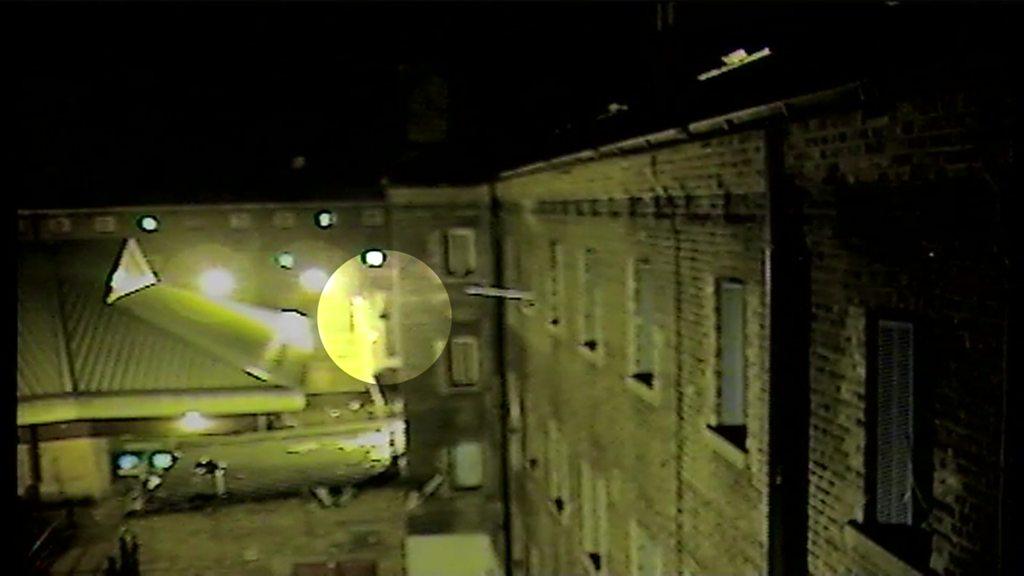Prisons to get 'biggest overhaul in a generation'
- Published
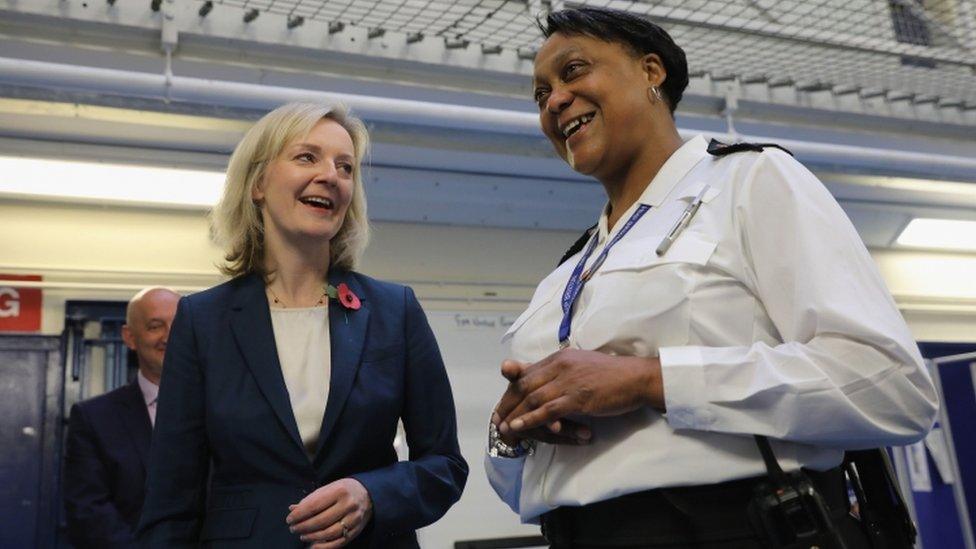
Liz Truss, left, plans to give governors more say over how their prisons are run
Prisons in England and Wales are to see their biggest overhaul in a generation, Justice Secretary Liz Truss has said.
She unveiled a White Paper, external detailing £1.3bn investment in new prisons over the next five years, and plans for 2,100 extra officers, drug tests and more autonomy for governors.
Labour said the announcement was "too little, too late", saying earlier staff cuts had created a "crisis in safety".
Unions have raised concerns about a rise in violence and suicide in jails.
The Prison Officers Association (POA) warned on Wednesday that jails were facing bloodbaths unless more staff were recruited and retained.
'Refocus the system'
Addressing MPs in the Commons, Ms Truss said the prison system was under "serious and sustained pressure", with missed opportunities in the past to introduce reforms.
She is promising a zero-tolerance approach toward attacks on prison staff and says body-worn cameras will be rolled out across the prison estate to increase officers' confidence.
The cost to society of reoffending by former prisoners was estimated to be £15bn a year, Ms Truss said, adding: "We owe it to our hard-working prison staff to reverse these trends. We owe it to prisoners and their families. And we owe it to our communities and victims of crime."
She said: "My starting point is to refocus the system so everyone is clear that safety and rehabilitation is the purpose of the prison system...
"Governors and staff cannot lead and manage change in an environment where they fear violence. Likewise, offenders cannot be expected to turn their life around while they are dependent on drugs or in fear of being assaulted."
The debate about a growing crisis in the prison service has increasingly focused on staff shortages, with officer numbers having fallen from about 25,000 to 18,000 since 2010.
The 2,100 extra officers announced in the White Paper are in addition to 400 new staff announced by Ms Truss last month, which means a total of 2,500 new recruits joining the service.
They are due to be in place by the end of 2018 at a cost of £100m a year, but will still leave staffing short of the levels seen before 2010.
The number of prisoners has risen slightly over the same period.

Analysis
By Danny Shaw, home affairs correspondent
This is a White Paper of two halves.
It is about restoring stability to prisons through improved security - and the recruitment of more staff. But levels will still be below those in 2010 and there are doubts as to whether enough people will be willing to stay in the job when the salary - starting at £20,500 - can be bettered in less stressful and dangerous environments.
The other half is about long-term reform, by empowering prison governors and holding them to account, ideas first set out by Liz Truss's predecessor, Michael Gove.
But whereas Mr Gove spoke about "hope" and "redemption", Ms Truss emphasises the need for "evidence" and "data".
She wants a system where each prison's performance is measured and monitored, where inspectors have greater powers, and where the justice secretary can intervene, if necessary, by closing failing institutions.
It's an ambitious plan which may drive up standards, but could also lead to additional bureaucracy and a culture of target setting.
How dangerous are our prisons?
The prison officers helping ex-prisoners

Watch a drone deliver drugs and mobile phones to London prisoners in April 2016
Latest figures show a new high of 65 assaults in jails every day.
In the year to June, assaults on staff jumped by 43% to 5,954, with 697 of these recorded as serious.
Liz Truss tells Radio 4's Today programme more prison staff will be recruited
Speaking on BBC Breakfast, Steve Gillan, from the POA, said: "The reality is this government has caused the problem - they've cut the staffing levels, they've taken so much money out of the system that the system is broken."
He said the union would consider industrial action beyond the 11 November deadline it has set for the government to take action over prison violence.

Key points from the White Paper

Greater governor autonomy, including discretion over releasing inmates on temporary licences
Planning permission application to be made for new prisons at Wellingborough and Glen Parva
Five new community prisons to house women ahead of release
Confirmation of existing plans to provide up to 10,000 new adult places and close old jails
Testing for drug use on entry and exit from prison
No-fly zones over prisons to stop drones dropping off drugs and contraband
New staff will include 40 high-achieving graduates and former armed forces personnel
Prison officers to act "not just a security guards and minders but also as mentors"
Every prisoner to have a dedicated officer
New performance measures for every prison with annual league tables

Warnings have also come from prisoners on the inside, with one inmate at London's Pentonville telling the BBC that knives are flown in by drones and razors are melted into toothbrushes to make weapons.
Shadow justice secretary Richard Burgon said Ms Truss needed to regain the trust of prison governors and officers.
"The story in our prison system since 2010 is a story of spiralling violence and drug use," he said.
"The root cause of this prison crisis is the political decision to cut our prison service back to the bone."
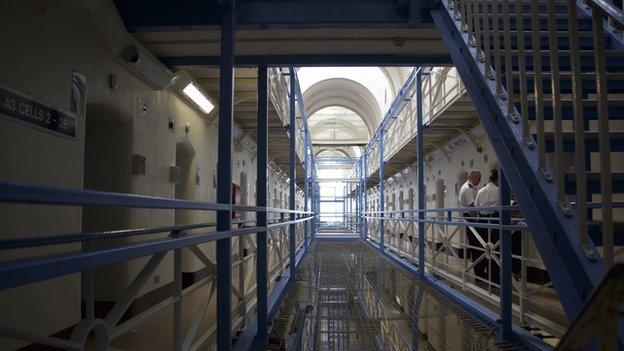
Dame Sally Coates, a former head teacher who carried out a review of education in prisons for the government earlier this year, said the extra officers pledge was "probably not going to be enough, but it's a start".
She told BBC Radio 4's Today programme officers should be trained to be more than just "turnkeys" whose only job was to lock people up.
Ms Truss said the reform plans would address reoffending rates.
"We will give governors the tools they need to drive forward improvements," she told the Commons. "We will push decision-making authority and budgets - for the things that make a difference to offenders - down to governors, whether that is education, family services or how they run their regime."
- Published3 November 2016
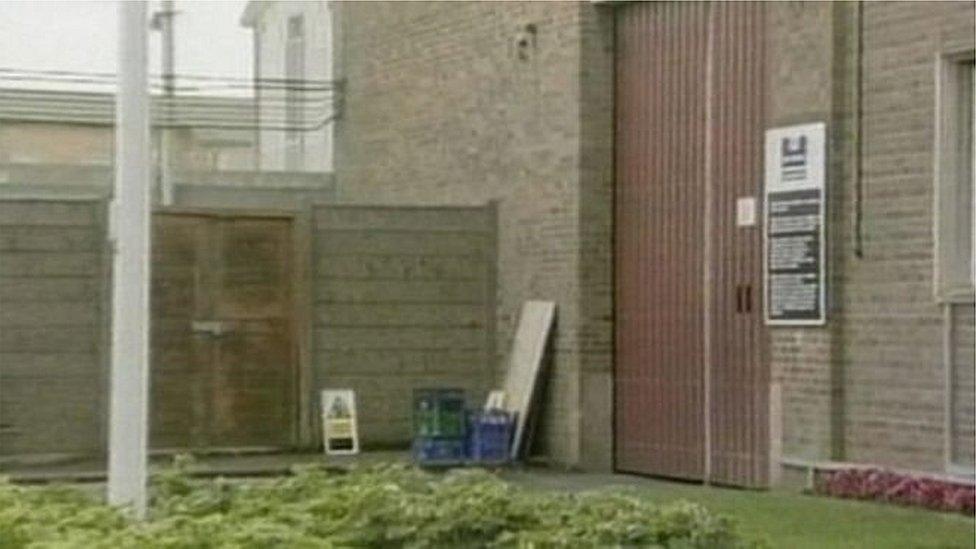
- Published2 November 2016
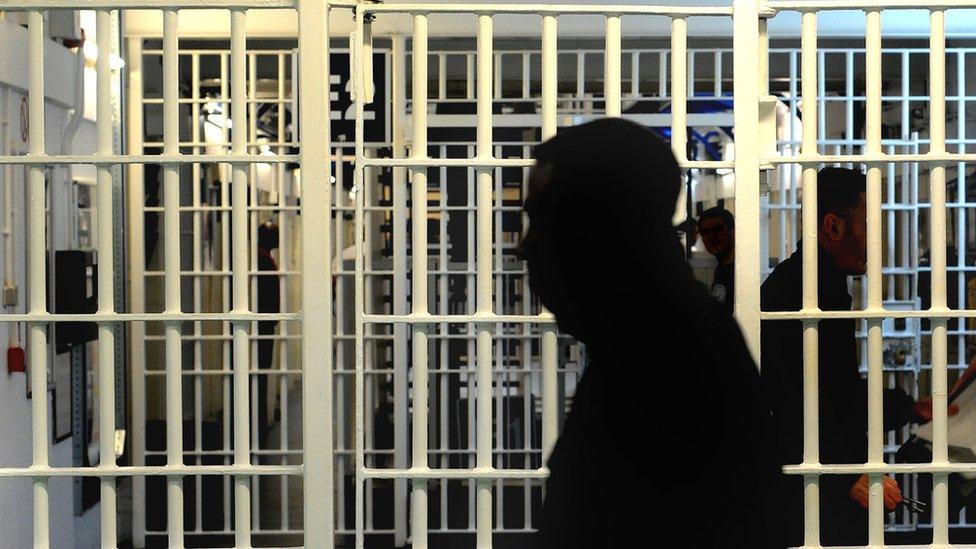
- Published20 October 2016
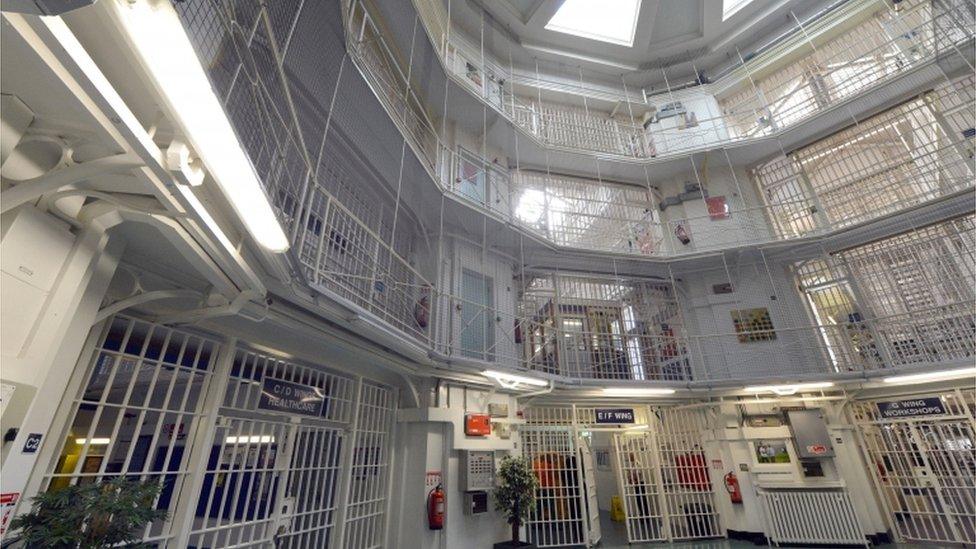
- Published20 October 2016
- Published19 October 2016
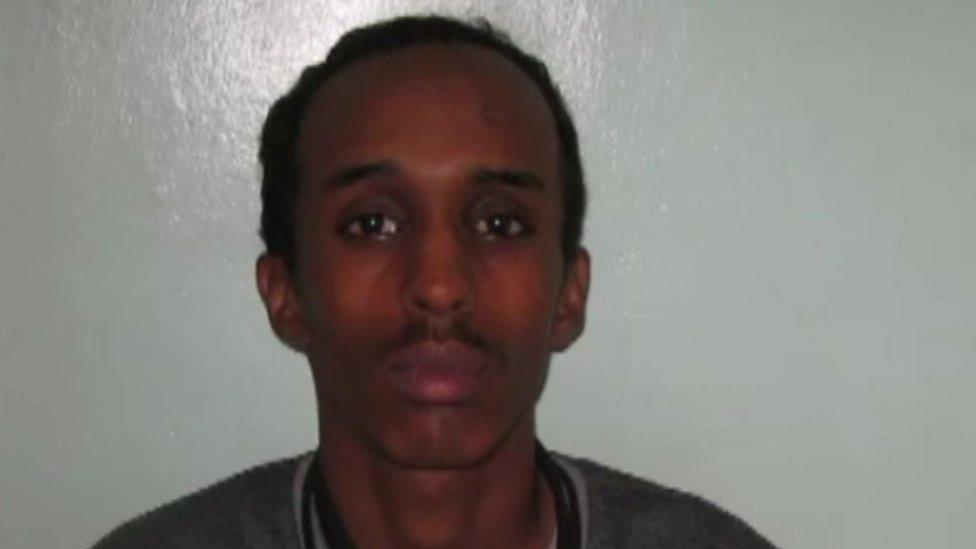
- Published7 November 2016
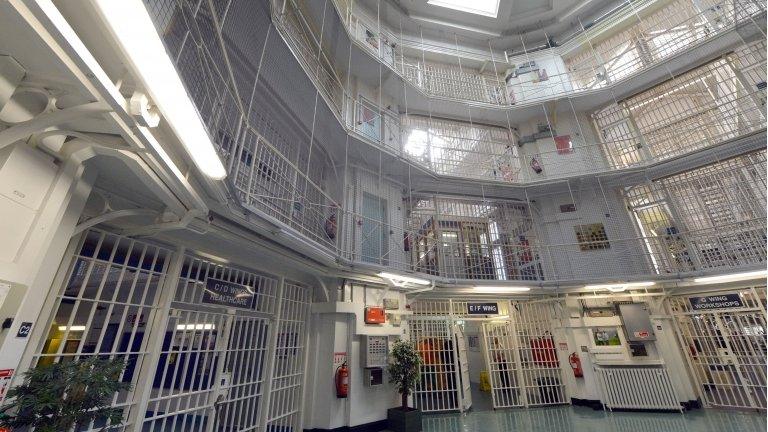
- Published19 July 2016

- Published16 May 2016
